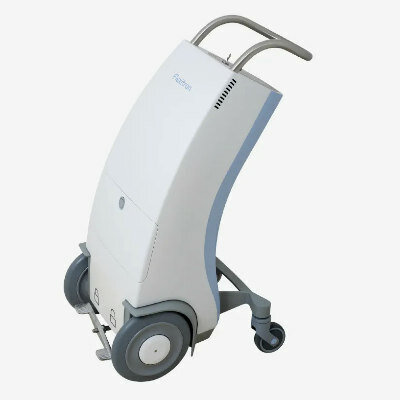Brain Region Can Be Stimulated To Reduce the Cognitive Deficits of Sleep Deprivation
By MedImaging staff writers
Posted on 25 Feb 2008
A research team has uncovered how stimulation of a specific brain region can help stave off the deficits in working memory, associated with extended sleep deprivation. Posted on 25 Feb 2008
Working memory is a specific form of short-term memory that relates to the ability to store task-specific information for a limited timeframe, e.g., where one's car is parked in a huge mall lot or remembering a phone number for few seconds before writing it down. It has long been established that cognitive performance, such as working memory, declines with sleep deprivation.
"We are excited about the possibilities of using brain stimulation to improve cognitive function,” said Bruce Luber, Ph.D., lead author of the study and an instructor in clinical psychiatry at Columbia University College of Physicians & Surgeons (New York, NY, USA). "We recently published a study in which we were able to improve the working memory performance of young adults for the first time and this new study extends our findings.”
"In this research, we were able to noninvasively manipulate a brain network identified by imaging to partially remediate the effects of sleep deprivation using repetitive transcranial magnetic stimulation [rTMS], which has already shown promise in treating depression and other disorders," said Sarah H. Lisanby, M.D., senior author of the study and co-principal investigator of the research funded by a Defense Advanced Research Projects Agency (DARPA; Arlington, VA, USA) grant.
The study's findings were published online on January 17, 2008 in Cerebral Cortex. In an earlier study, the investigators identified a sleep deprivation network of brain areas that was active during the performance of a working memory task. Expression of this network was reduced following sleep deprivation. They also found a relationship between reduced expression of this network following sleep deprivation and poorer performance on the working memory task.
In the study, 15 young, healthy individuals underwent sleep deprivation for 48 hours. Working memory was tested using a letter recognition test, known as the delayed match to sample (DMS) task, in which subjects have to recall as quickly as possible whether a letter was included in a set of letters they had just seen. Participants performed this task during functional magnetic resonance imaging (fMRI) sessions both before sleep deprivation and at the conclusion of the sleep deprivation period.
The researchers used repetitive rTMS to test whether stimulation of three brain regions in the previously identified network following the sleep deprivation period could improve performance on the working memory task. rTMS administers a rapid sequence of magnetic pulses to a specific brain area.
Results showed that stimulation at a site over left lateral occipital cortex, a prominent part of the brain network identified with fMRI, resulted in a reduction of sleep-induced slower reaction time without a corresponding decrease in accuracy. This improvement in performance was most marked in those individuals who showed the greatest reduction in the expression of the brain network following sleep deprivation.
These present findings are consisted with the concept of cognitive reserve because some participants suffered larger deficits in working memory performance due to sleep deprivation, while others were much less affected. These susceptibility differences were related to differential expression of a brain network.
This suggests that the activity of the sleep deprivation network exhibited properties of neural reserve, where a greater capacity or efficiency in the network allowed some individuals to maintain performance in the face of sleep deprivation. Moreover, these results suggest that rTMS was able to somehow enhance the network activity in those who were not able to maintain performance, artificially facilitating neural reserve.
Related Links:
Columbia University College of Physicians & Surgeons
DARPA














